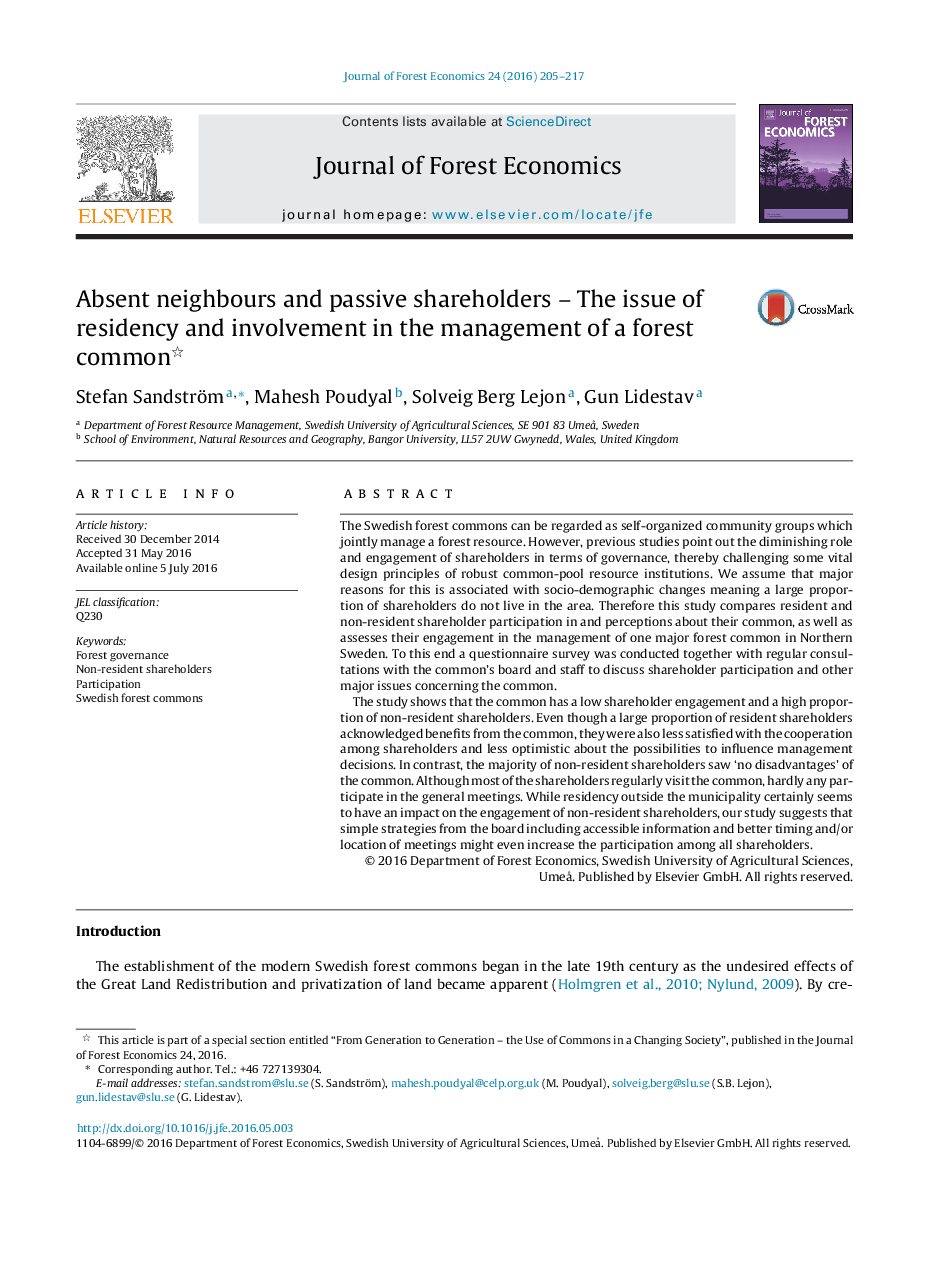| Article ID | Journal | Published Year | Pages | File Type |
|---|---|---|---|---|
| 6545161 | Journal of Forest Economics | 2016 | 13 Pages |
Abstract
The study shows that the common has a low shareholder engagement and a high proportion of non-resident shareholders. Even though a large proportion of resident shareholders acknowledged benefits from the common, they were also less satisfied with the cooperation among shareholders and less optimistic about the possibilities to influence management decisions. In contrast, the majority of non-resident shareholders saw 'no disadvantages' of the common. Although most of the shareholders regularly visit the common, hardly any participate in the general meetings. While residency outside the municipality certainly seems to have an impact on the engagement of non-resident shareholders, our study suggests that simple strategies from the board including accessible information and better timing and/or location of meetings might even increase the participation among all shareholders.
Keywords
Related Topics
Life Sciences
Agricultural and Biological Sciences
Agronomy and Crop Science
Authors
Stefan Sandström, Mahesh Poudyal, Solveig Berg Lejon, Gun Lidestav,
